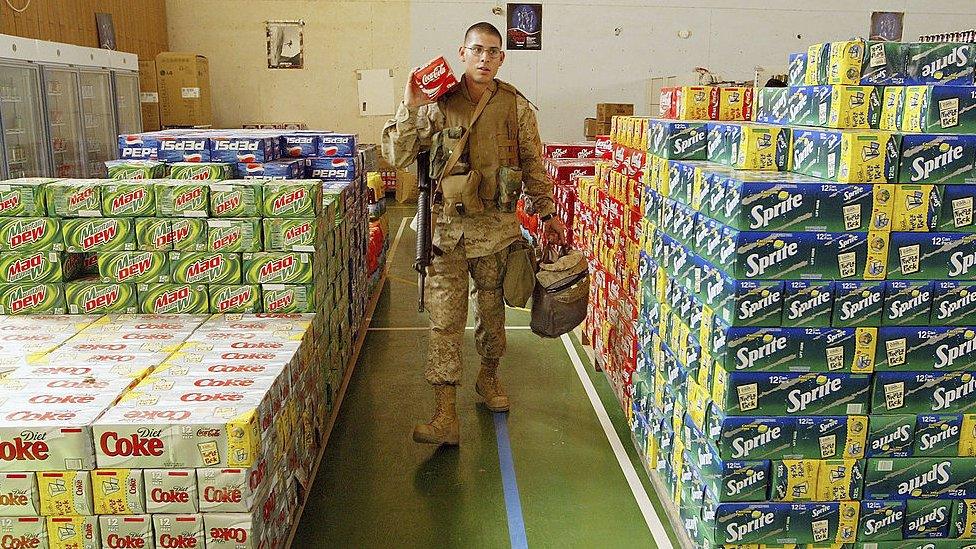Sharp rise in brain injuries from Iran raid on US base
- Published
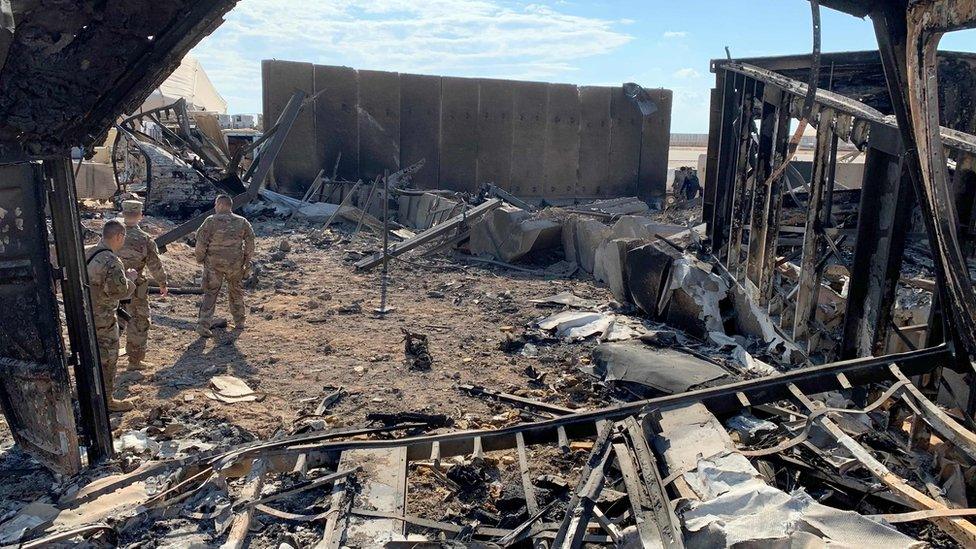
Iran attacked a US base in Iraq in retaliation for the killing of Iran General Qasem Suleimani
The number of US troops suffering from traumatic brain injuries (TBI) after an Iranian attack on a US base in Iraq in January has risen to 109, according to US officials.
The figure is a significant increase from the 64 injured service members previously reported by the Pentagon.
President Donald Trump initially said no Americans were injured in the raid.
The attack on 8 January came amid tensions over the US killing of an Iranian general.
Nearly 70% of the injured service members have returned to their duties, the Pentagon added in its statement.
Mr Trump originally cited the supposed lack of injuries in his decision not to strike back against Iran.
The rising number of reported cases results from the mild form of injury which means symptoms take time to manifest, the Pentagon said in a news conference in January.
"They landed in a way that didn't hit anybody," Mr Trump told Fox Business Network on Monday.
"And so when they came in and told me that nobody was killed, I was impressed by that and, you know, I stopped something that would have been very devastating for them," he said, without specifying what had been "stopped".
But Senator Joni Ernst, a Republican from Iowa, called for more answers.
Inside the US base attacked by Iranian missiles
"It's vital we have a plan to treat these injured service members.
"I've called on the Pentagon to ensure the safety and care of our deployed forces who may be exposed to blast injuries in Iraq," she tweeted.
Allow X content?
This article contains content provided by X. We ask for your permission before anything is loaded, as they may be using cookies and other technologies. You may want to read X’s cookie policy, external and privacy policy, external before accepting. To view this content choose ‘accept and continue’.
Last month President Trump downplayed the significance of traumatic brain injuries when asked about the impact of the attack.
"I heard that they had headaches, and a couple of other things, but I would say, and I can report, it's not very serious," he said.
When asked about possible TBIs he said: "I don't consider them very serious injuries relative to other injuries I have seen."


What are traumatic brain injuries?
TBIs are common in warzones, according to the US military.
The most common cause of a TBI for deployed soldiers is an explosive blast, writes the US Defense and Veterans Brain Injury Center.
They are classified as mild, moderate, severe or penetrating. A mild TBI is also known as a concussion, and can be caused by a blast's "atmospheric over-pressure followed by under-pressure or vacuum".
The air vacuum is capable of penetrating solid objects, making it possible for soldiers to avoid blunt force trauma but still receive an invisible brain injury.
More than 400,000 troops have been diagnosed with TBI's since 2000, according to the US government.
- Published24 January 2020
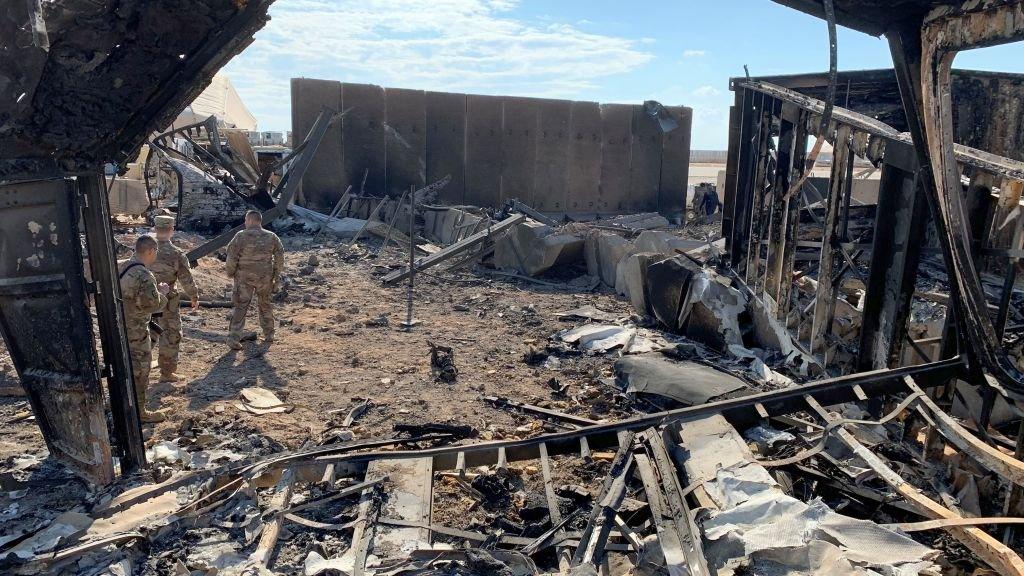
- Published13 January 2020
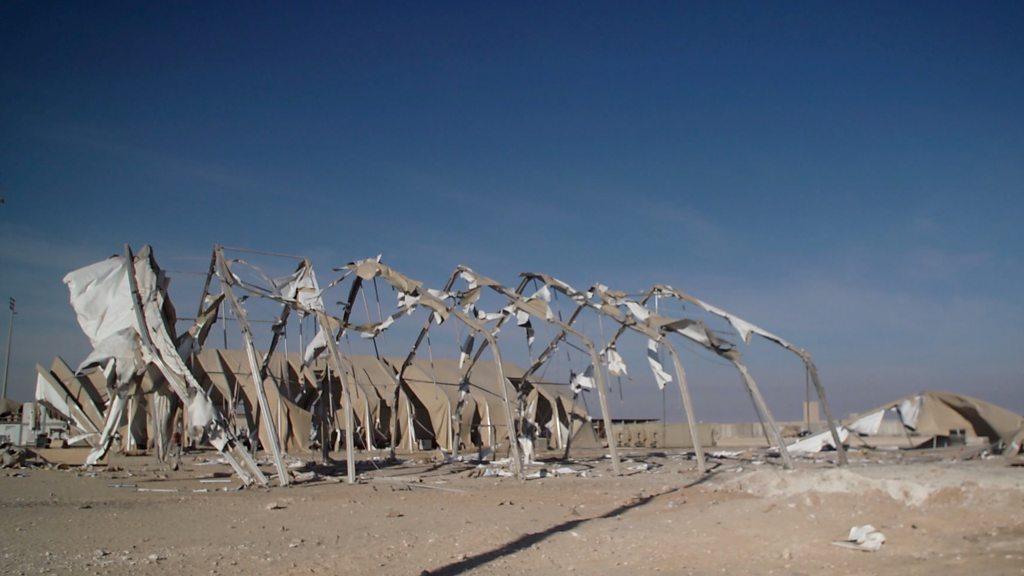
- Published24 January 2020
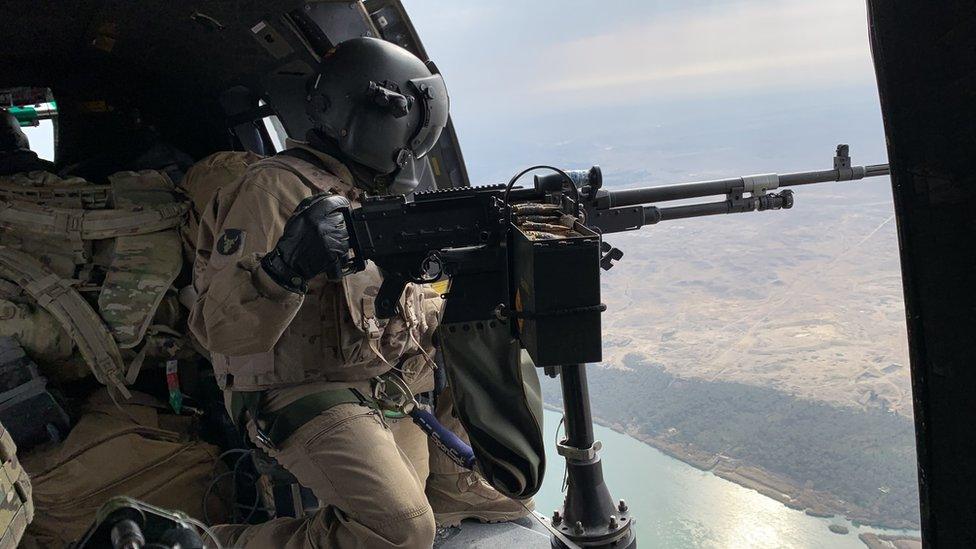
- Published24 January 2020
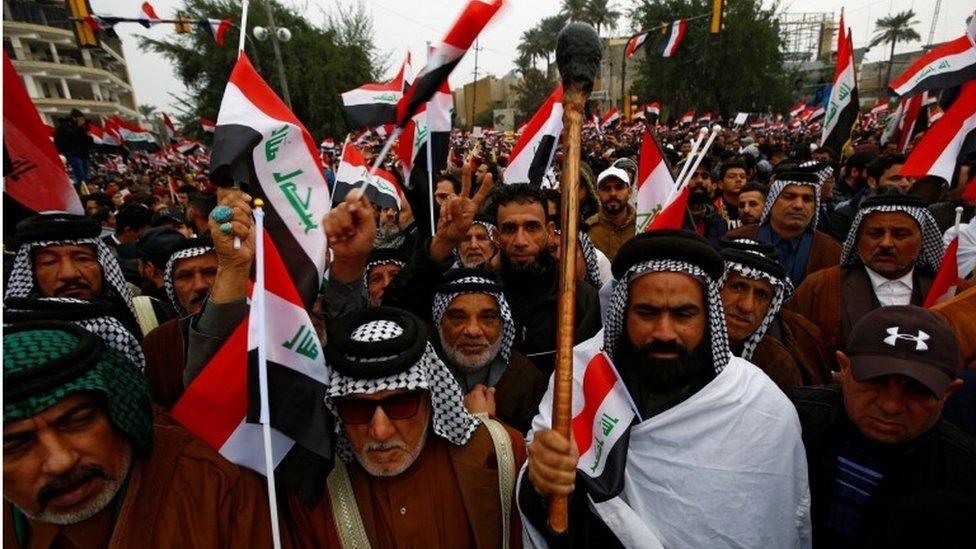
- Published8 January 2020
